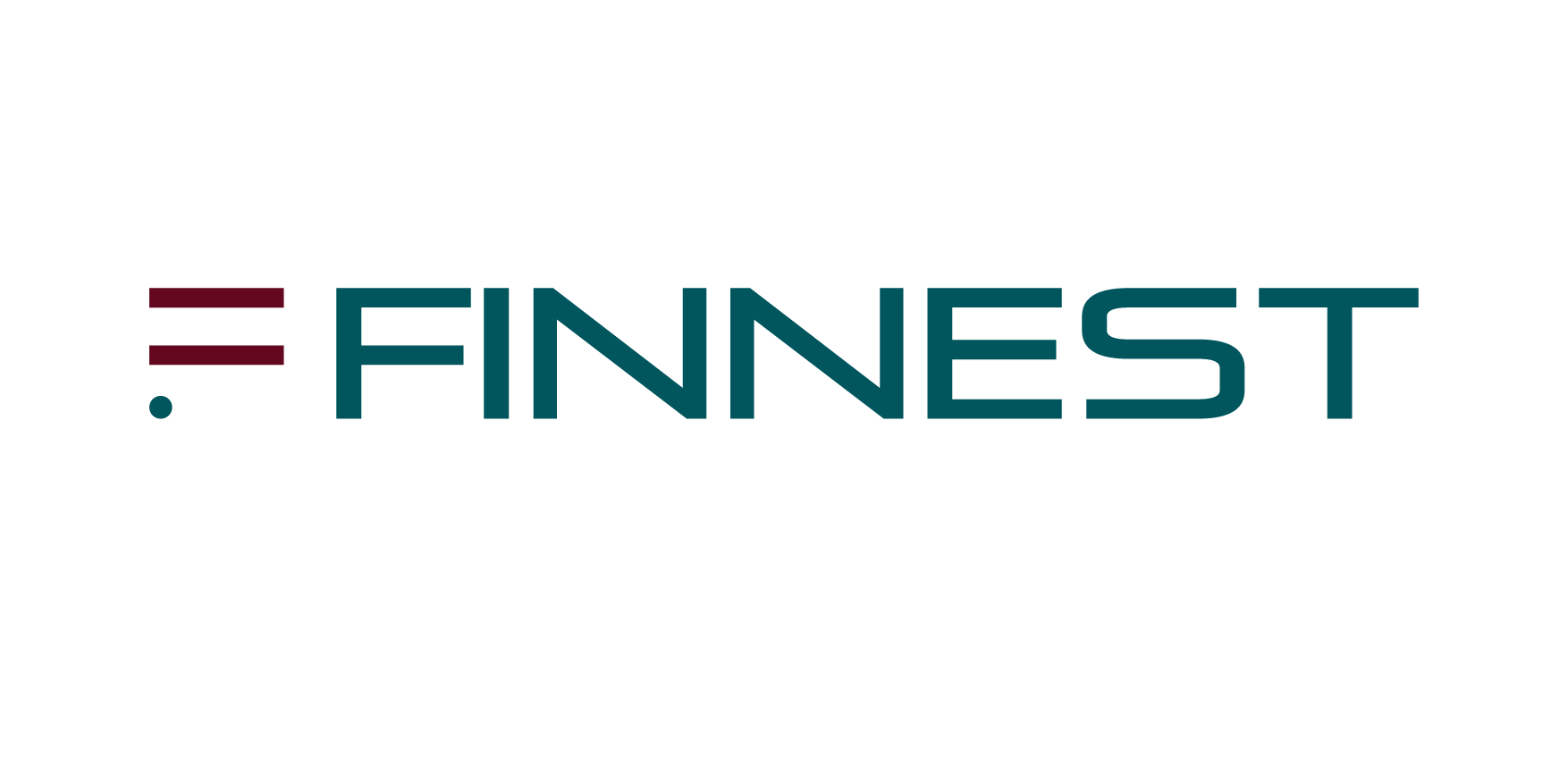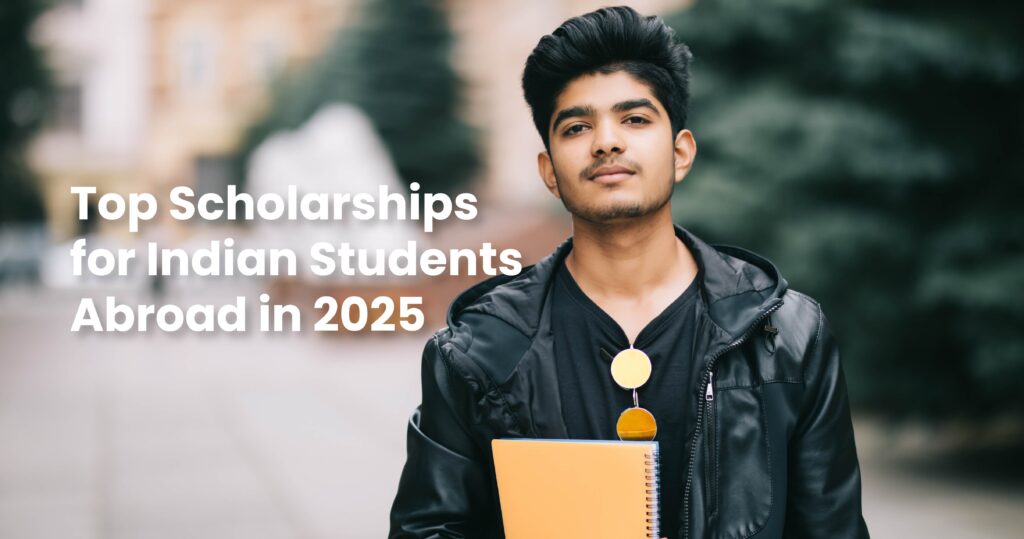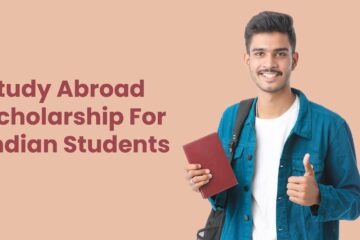Introduction
With the rising cost of international education, scholarships and grants have become essential tools for Indian students aspiring to study abroad. From Ivy League universities in the U.S. to tuition-free programs in Europe, more Indian students than ever are pursuing global degrees—backed by the right financial support.
However, while opportunities are abundant, navigating the world of international scholarships can be overwhelming. Each country, university, and organization offers its own set of eligibility criteria, application timelines, and coverage options. Knowing where to start and which scholarships match your goals is the key to making your dream education financially feasible.
Section 1: Government-Funded Scholarships
Government-funded scholarships are some of the most prestigious and comprehensive options available for Indian students pursuing education abroad. These programs are often backed by bilateral agreements and focus on academic excellence, leadership potential, and cultural exchange.
1.1 Fulbright-Nehru Fellowships (USA)
Overview:
Offered by the United States-India Educational Foundation (USIEF), the Fulbright-Nehru Fellowships support Indian students applying for master’s degrees in the U.S. across fields like public administration, international relations, education, public health, and more.
Eligibility:
- Indian citizenship with a completed bachelor’s degree
- Strong academic and professional track record
- Demonstrated leadership skills and community service involvement
Coverage Includes:
- Tuition and fees
- Living expenses
- Round-trip airfare
- Accident and sickness coverage
Application Timeline:
Opens in February and typically closes by May each year for programs beginning the following year.
1.2 Commonwealth Scholarships (UK)
Overview:
Funded by the UK government, Commonwealth Scholarships are offered to students from Commonwealth countries—including India—for master’s and doctoral programs in the UK.
Eligibility:
- Indian citizens under 40 years of age
- Bachelor’s degree with strong academic performance
- Intention to contribute to home country development post-study
Coverage Includes:
- Full tuition fees
- Airfare to and from the UK
- Stipend for living expenses
- Additional allowances for research and thesis preparation
Application Timeline:
Applications generally open around September and close by November for the following academic year.
1.3 National Overseas Scholarship (India)
Overview:
Provided by the Government of India, this scholarship supports students from Scheduled Castes, Scheduled Tribes, Landless Agricultural Laborers, and other marginalized groups to pursue master’s or PhD programs abroad.
Eligibility:
- Indian citizens from eligible categories
- Below 35 years of age
- Family income under ₹8 lakh per annum
- Admitted to a top 500 ranked university
Coverage Includes:
- Tuition fees
- Maintenance allowance
- Visa and travel expenses
- Contingency and medical insurance
Application Timeline:
Usually opens in February or March each year.
These government scholarships not only reduce financial barriers but also carry high recognition, enhancing both your academic and career profile. Applying early, aligning with the mission of each program, and crafting a strong personal narrative can significantly improve your chances of success.
Section 2: University-Specific Scholarships
2.1 Chevening Scholarships (UK – All Universities)
Overview:
Funded by the UK Foreign, Commonwealth & Development Office, the Chevening Scholarships are awarded to future leaders from across the globe, including India, to pursue a one-year master’s degree at any UK university.
Eligibility:
- Indian citizenship
- Minimum of 2 years of work experience
- Admission to a UK master’s program
- Strong leadership and networking potential
Coverage Includes:
- Full tuition fees
- Monthly stipend
- Travel costs to and from the UK
- Arrival and departure allowances
- Visa application fees
Application Timeline:
Applications open in August and close by early November for the following academic year.
2.2 Rhodes Scholarship (University of Oxford, UK)
Overview:
One of the most prestigious academic scholarships in the world, the Rhodes Scholarship funds exceptional Indian students to pursue postgraduate studies at the University of Oxford.
Eligibility:
- Indian citizens aged 19–25
- First-class undergraduate degree
- Exceptional intellect, leadership, and character
- Community service involvement
Coverage Includes:
- Full tuition and college fees
- Annual stipend for living expenses
- Economy-class airfare to and from Oxford
Application Timeline:
Typically opens in June and closes in early October.
2.3 Tata Scholarship for Cornell University (USA)
Overview:
Funded by the Tata Education and Development Trust, this scholarship supports Indian undergraduate students who have been admitted to Cornell University.
Eligibility:
- Indian citizen
- Demonstrated financial need
- Admission to an undergraduate program at Cornell
Coverage Includes:
- Full need-based financial aid for the duration of the undergraduate program
Application Timeline:
Apply for admission and financial aid concurrently through Cornell’s application portal by the university’s deadlines (usually Jan 2 for Regular Decision).
University-specific scholarships are highly competitive, but they are also incredibly rewarding. Focus on strong academics, impactful extracurriculars, and compelling personal statements when applying.
Section 3: Country-Specific Scholarships
In addition to global and university-level scholarships, several countries offer national-level scholarship programs exclusively for international students, including Indian nationals. These government-backed schemes are aimed at promoting educational exchange and attracting global talent to their institutions.
3.1 DAAD Scholarships (Germany)
Overview:
The German Academic Exchange Service (DAAD) offers fully and partially funded scholarships for international students pursuing postgraduate degrees, particularly in fields like engineering, environmental science, and public policy.
Eligibility:
- Indian graduates with a minimum of two years of work experience (for most programs)
- Strong academic record and clear career goals
- Admission to a German university (or in progress)
Coverage Includes:
- Monthly stipend (~€934 for graduates, ~€1,200 for doctoral candidates)
- Travel allowance
- Health insurance
- Tuition fees (if applicable)
Application Timeline:
Most programs open from August to October; deadlines vary by course.
3.2 Eiffel Excellence Scholarship Program (France)
Overview:
Offered by the French Ministry for Europe and Foreign Affairs, this prestigious scholarship supports international students in master’s and PhD programs in areas such as science, economics, law, and political science.
Eligibility:
- Indian nationals up to 25 years old (for master’s), or 30 (for PhD)
- Strong academic record
- Admission to a participating French higher education institution
Coverage Includes:
- Monthly stipend (€1,181 for master’s, €1,700 for PhD)
- International airfare
- Health insurance
- Cultural activities allowance
Application Timeline:
Applications are submitted by French institutions on behalf of students. Internal university deadlines usually fall between October and December.
3.3 New Zealand Excellence Awards (NZEA)
Overview:
Jointly funded by Education New Zealand and New Zealand universities, NZEA supports Indian students enrolling in undergraduate and postgraduate programs in key areas like STEM, agriculture, and business.
Eligibility:
- Indian citizens with a strong academic background
- Acceptance into an eligible program at a participating NZ university
Coverage Includes:
- NZD 10,000 for postgraduate study
- NZD 5,000 for undergraduate study
Application Timeline:
Usually opens in January and closes by April/May for the July intake.
Country-specific scholarships often come with additional benefits, such as visa support, job fairs, and internship access—making them a great fit for students looking at long-term career or residency plans in their destination country.
Section 4: Private and Non-Governmental Scholarships
Beyond government and university-led initiatives, several private foundations, trusts, and non-profit organizations offer scholarships to Indian students pursuing education abroad. These programs often target high-achieving students, niche fields, or underrepresented communities.
4.1 Inlaks Shivdasani Foundation Scholarships
Overview:
The Inlaks Foundation offers scholarships to Indian students pursuing full-time master’s, MPhil, or doctoral degrees at top universities in the U.S., the UK, and Europe. The field of study includes humanities, social sciences, fine arts, and environmental studies.
Eligibility:
- Indian citizen under 30 years of age
- First-class undergraduate degree
- Admission to a reputable institution (in top global rankings)
- Not already started the course
Coverage Includes:
- Tuition fees
- Living expenses
- One-way travel allowance
- Cap of USD 100,000 (expenses beyond must be self-funded or covered by other sources)
Application Timeline:
Typically opens in January and closes by late March.
4.2 Narotam Sekhsaria Foundation Scholarship
Overview:
This merit-based loan scholarship supports Indian students pursuing postgraduate studies in top-ranking global institutions in fields such as applied sciences, law, architecture, and business.
Eligibility:
- Indian national below 30 years
- Excellent academic track record
- Admission to a top-ranking international university
Coverage Includes:
- Interest-free loan scholarship
- Repayment begins one year after course completion
Application Timeline:
Opens in January with interviews conducted by June.
4.3 JN Tata Endowment for the Higher Education of Indians
Overview:
One of India’s oldest private scholarships, this is a loan-based support program for Indian students heading abroad for higher education in any field.
Eligibility:
- Indian citizens under 45 years
- Graduate degree holders from recognized Indian institutions
- Confirmed admission to an international university
Coverage Includes:
- Loan scholarship ranging from ₹1 lakh to ₹10 lakhs
- Partial travel grants or gift scholarships available
Application Timeline:
Applications open in December–January; interviews are held mid-year.
4.4 KC Mahindra Scholarships for Postgraduate Studies Abroad
Overview:
Awarded to Indian students pursuing full-time postgraduate studies abroad, especially in engineering, science, and technology.
Eligibility:
- Indian citizen with a first-class degree
- Admission to a top international university
Coverage Includes:
- Interest-free loan scholarships up to ₹10 lakhs
- 3–4 top applicants receive a scholarship grant (not loan) of ₹20 lakhs
Application Timeline:
Applications typically open in January and close by March.
Private and NGO scholarships often come with smaller applicant pools and unique eligibility criteria—making them a great opportunity for students who apply strategically. They’re also valuable for topping up partial government or university aid.
Section 5: Application Tips and Strategies
With thousands of applicants competing for a limited number of scholarships, standing out requires more than good grades. Here are some proven strategies to strengthen your scholarship applications and boost your chances of success.
5.1 Research the Right Scholarships Early
- Start 12–18 months in advance. Many scholarships close long before university application deadlines.
- Use official portals like DAAD, Chevening, Scholarships.gov.in, or individual university sites.
- Shortlist scholarships that match your field of study, career goals, and academic profile.
5.2 Craft a Strong Application
- Personal Statement/SOP: Tell your story—why this course, why this country, and how it fits into your long-term vision.
- Academic Achievements: Back up your excellence with transcripts, certificates, and rankings.
- Recommendation Letters: Choose mentors or professors who can speak to both your academics and character.
- CV/Resume: Keep it updated, concise, and tailored to each scholarship.
5.3 Track Deadlines and Prepare a Timeline
- Use a simple tracker (Google Sheet or app) to monitor:
- Opening & closing dates
- Required documents
- Interview timelines (if any)
- Opening & closing dates
- Set calendar reminders 2 weeks before every major deadline.
5.4 Apply to Multiple Opportunities
- Don’t rely on one big scholarship—apply to 4–5 options.
- Combine partial scholarships, university-specific aid, and education loans if needed.
- Many students secure 100% funding this way even if one source doesn’t cover everything.
5.5 Bonus Tip: Practice for Scholarship Interviews
- Some top scholarships (like Rhodes or Inlaks) include interviews.
- Be prepared to discuss your academic background, goals, leadership experience, and social impact ideas.
- Stay authentic, curious, and focused on how you’ll contribute globally.
Conclusion: Your Global Dream is Within Reach
Studying abroad is no longer reserved for the privileged few. With the right scholarship or grant, you can unlock access to world-class education without overwhelming financial stress. From government-backed fellowships to university-specific aid and private foundations, opportunities for Indian students have never been more diverse or abundant.
Success lies in early planning, thoughtful preparation, and strategic application. Whether you’re aiming for a master’s in the U.S., a research program in Europe, or an undergrad at a top global university, there’s funding out there for you.
Take the First Step with Finnest
Navigating scholarships can be overwhelming, but you don’t have to do it alone.
At Finnest, we help students identify the best scholarship-fit opportunities, craft winning applications, and combine them with smart education loan options when needed.
Ready to fund your study abroad dream?
Book a free consultation with Finnest and let us simplify your path to international education—without the financial stress.
Frequently Asked Questions (FAQ)
1. When should I start applying for scholarships to study abroad in 2025?
It’s best to start 12–18 months before your intended intake. For a 2025 admission, begin researching and preparing by mid-2024. Many major scholarships (like Chevening, DAAD, and Fulbright) close applications by the end of the preceding year.
2. Can I apply for multiple scholarships at the same time?
Yes, absolutely. In fact, it’s encouraged. You can apply for multiple scholarships from different sources—government, universities, and private foundations. Just ensure you meet each program’s specific eligibility and do not violate any exclusivity terms.
3. What are the key documents required for most scholarship applications?
Most applications require:
- Academic transcripts
- Statement of purpose/personal essay
- Letters of recommendation
- Proof of admission (or conditional offer)
- Proof of identity (passport)
- Income or financial documents (for need-based scholarships)
4. Are there scholarships specifically for undergraduate Indian students abroad?
Yes. Scholarships like the Tata Scholarship for Cornell, New Zealand Excellence Awards, and many university-level merit awards are available for Indian undergraduate students. Some universities also offer automatic merit-based discounts during admission.
5. What should I do if I don’t get a full scholarship?
Partial scholarships can be combined with other aid sources. You can also explore education loans, university assistantships, and part-time work opportunities abroad to cover your remaining expenses. Financial planning and early preparation can help bridge any gaps.


